Why isn’t Modi fielding any candidates in Kashmir?
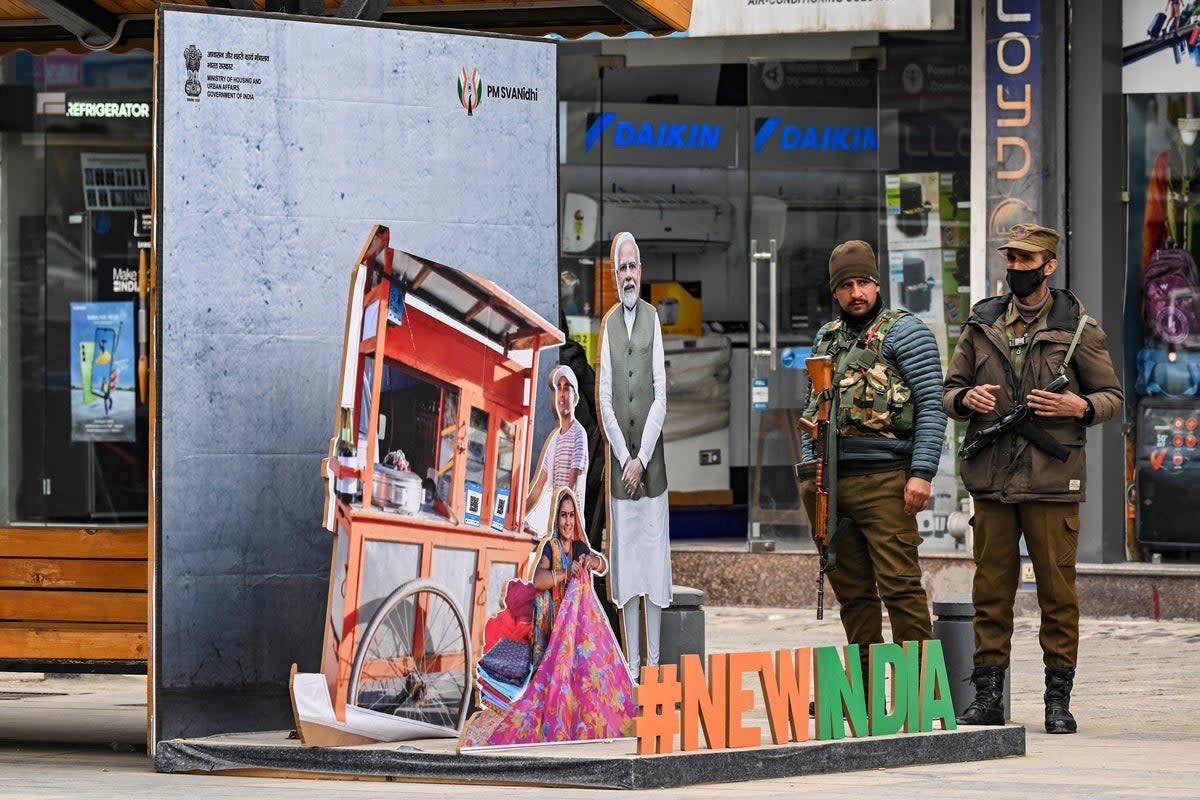
Narendra Modi, who has campaigned across India during the mammoth seven-phase elections, is yet to step foot inside Kashmir, a disputed Himalayan region he and his governing party showcase as peaceful and stable since he revoked its semi-autonomous status in 2019.
The Muslim-majority region went to polls on Monday, along with cities across India where millions voted in the fourth round of the general elections which will result in the formation of a new federal government in Delhi, with ballots set to be counted on 4 June.
The conflict-torn and sensitive valley is voting for the first time since prime minister Modi’s administration directly brought it under its control in 2019. The move was widely dubbed as contentious as the legislation was passed by placing a majority of Kashmir’s opposition leaders and political activists under house arrest. The Modi government also implemented an internet and communication blackout in the region.
Two more rounds of voting will be held in Kashmir on 20 May and 25 May.
Mr Modi’s governing Bharatiya Janata Party (BJP) has not fielded any candidate in Kashmir and left the political match to two regional parties – the National Conference (NC) and the People’s Democratic Party (PDP). The two parties have had historical presence in the region and have been seen as BJP’s key rivals. This is the first time since 1996 that Mr Modi’s BJP is not fighting elections in Kashmir.
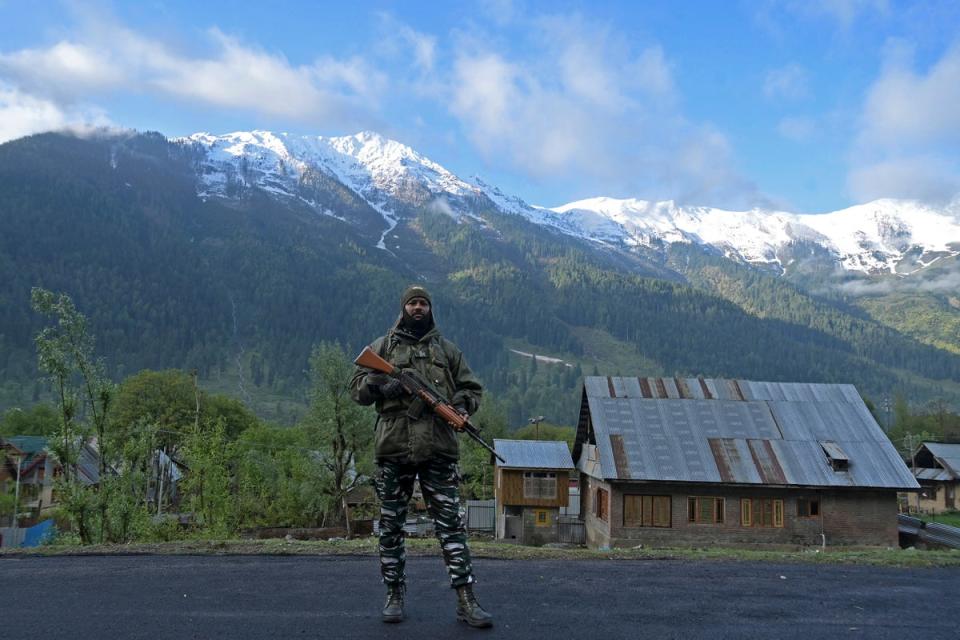
Several opposition parties have claimed that the BJP’s decision to not compete in Kashmir stemmed from the fear that its narrative of success in the region cannot be put to test in federal elections. They said the results may contradict this narrative.
The elections in Kashmir are about “a referendum against the government’s decisions and policies that were implemented without any public consent”, said Waheed-Ur-Rehman Para, a PDP leader who is seeking to represent Srinagar, one of the three cities witnessing going to polls.
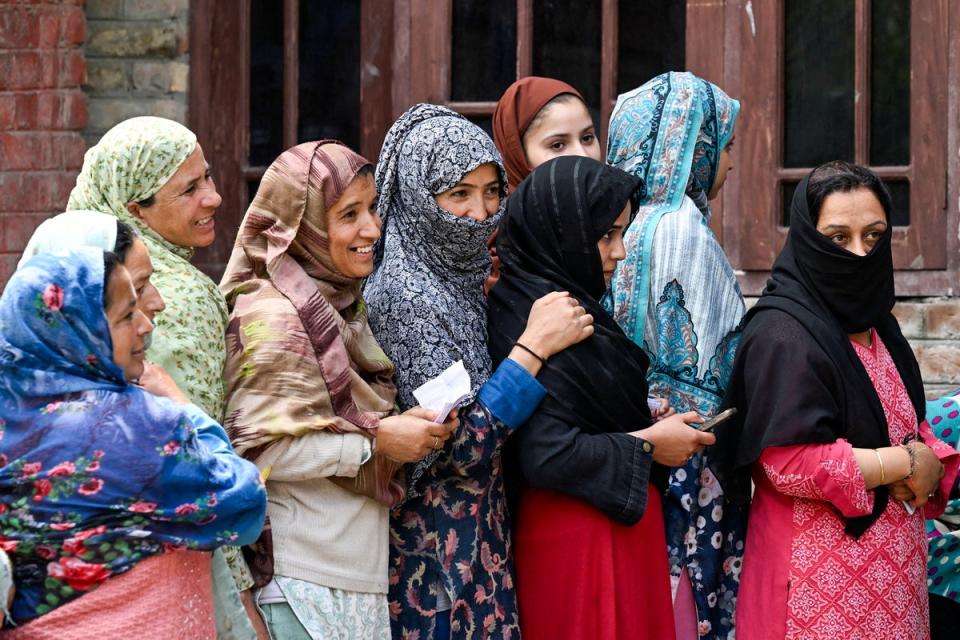
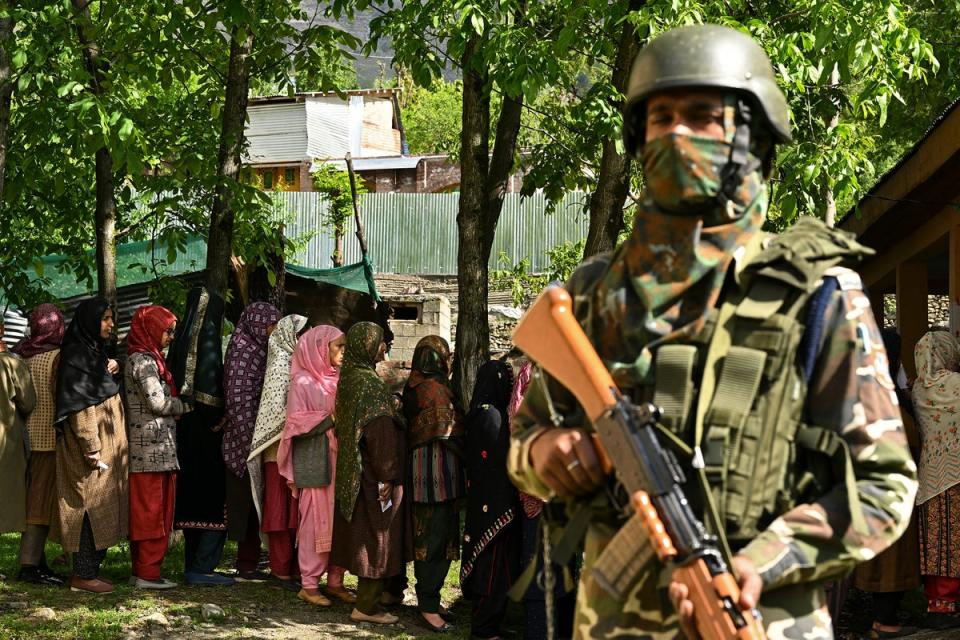
Mr Modi’s party has repeatedly claimed that they brought prosperity and stability in the restive territory bordering Pakistan which has remained under the grips of separatist violence since the early 1990s.
Omar Abdullah, Mr Modi’s rival and former chief minister of the federal territory, said: “If people were happy with the abrogation of Article 370, the BJP wouldn’t have hesitated to fight. But they don’t want to expose themselves, and to save face, they have decided not to contest.” Article 370 of the Indian constitution granted the valley its special status.
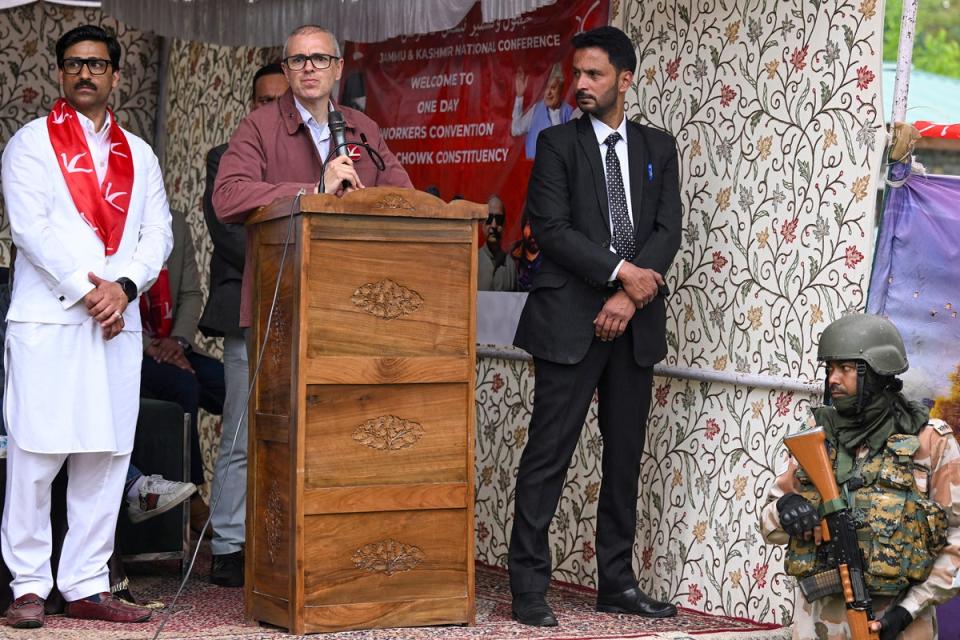
NC candidate Syed Aga Ruhulla told Al Jazeera that the election is an opportunity for voters in Kashmir “to express their dissent”.
“They have to show they don’t accept [the decision to revoke Article 370],” Mr Ruhulla said.
Despite claims that his government brought down violence in the region, Mr Modi only made a single visit to Kashmir since 2019 in March this year when he travelled to Srinagar under heavy paramilitary protection. Government forces laid razor wires and erected dozens of checkpoints on the roads ahead of his visit.
As of 3pm on Monday, the Srinagar seat saw only 29.93 per cent voter turnout, according to the Election Commission of India.
Monday’s polling in the fourth round of multi-phase national elections across nine states and one federal territory will be pivotal for Mr Modi’s Hindu nationalist BJP, as it includes some of its strongholds in states like Uttar Pradesh and Madhya Pradesh.


